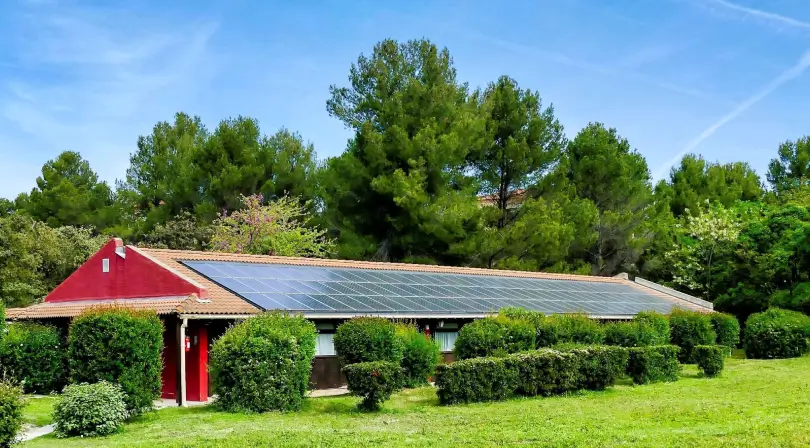Explore the rise of residential solar solutions and harness the power of solar energy to reduce bills, increase home efficiency, and promote sustainable living. In recent years, there has been a substantial increase in the use of residential solar solutions as homeowners extract alternatives to conventional energy sources that are environmentally friendly and cost-effective. The industry has benefited from advances in technology, government subsidies, and owners are expressing increasing concern regarding environmental issues, all of which have made the notion of using the sun’s virtually unlimited power to run their homes more attractive than ever. By discussing the growing phenomenon of residential solar solutions, this paper will share not only the appeals and possible considerations to keep in mind but also discuss the implications they have on homeowners, as well as the planet.
The Power of Solar Energy
Solar energy is abundant and renewable energy derived from the sun that has tremendous potential to meet our energy needs in a sustainable way. For residential solar use, the most common solution involves the use of photovoltaic (PV) panels installed on either the roof of the house or a ground-mounted array, where the panels can take in sunlight and convert it to electricity. This electricity can be used to power your home, reducing dependence on fossil fuels and getting economical savings on your home energy bills.
A prominent advantage of solar energy is that it is environmentally friendly. Solar power generation, in contrast to fossil fuels, produces no greenhouse gases or air pollutants, providing clean and sustainable energy. Choosing solar allows homeowners to greatly lessen their carbon footprint and help stop climate change.
RELATED : SOLAR SOLUTIONS
Benefits of Residential Solar Solutions
The adoption of residential solar solutions offers numerous benefits to homeowners:
- Cost Advantages: Although the start-up costs of solar panels and installation may appear substantial upfront, if a homeowner is able to produce its own electricity and decrease reliance on grid electricity; there could be savings over time. In many areas, homeowners can also sell excess solar electricity back to the grid through net metering programs, reducing “electricity” costs and offsetting some of the costs associated with installation.
- Energy Independence: Solar power gives homeowners a certain degree of energy independence because homeowners can generate their own electricity onsite. Energy independence is especially valuable during a power outage when there is a disruption in the grid. Even during a power outage, homeowners can have uninterrupted access to electricity.
- Property Value Appreciation: Homes with solar panels generally have a higher resale value (and sell faster!) than similar homes without solar. Research shows that the installation of solar panels can increase the value of a home by as much as 4%, which is a pretty good return for homeowners.
- Environmental Impact: By transitioning to solar energy, homeowners play a crucial role in reducing greenhouse gas emissions and combating climate change. Solar power helps preserve natural resources, protect ecosystems, and create a more sustainable future for generations to come.
- Government Incentives: Many governments offer financial incentives, such as tax credits, rebates, and grants, to encourage the adoption of solar energy. These incentives can significantly reduce the upfront costs of installing solar panels, making them more accessible to homeowners.
Aspects for Homeowners
Although there are great incentives for switching to residential solar systems, homeowners should weigh a few items before moving forward:
Site Suitability: The performance of a solar installation depends on roof angle, shading, and available sunlight, so assessing a homeowners property is important to see their solar potential and confirm they will be producing usable energy from their solar panels.
- Upfront Costs: While the overall savings from solar energy can be significant over time, homeowners should be aware of the upfront costs (purchasing and installation) likely required for residential solar systems. Financing options, such as solar loans and leases, can help mitigate the expense of solar installations.
Maintenance Requirements: Solar panels should be low-maintenance, but regular check-ups and cleaning might be needed to ensure panels function optimally. Homeowners should weigh any maintenance costs and responsibilities when evaluating solar installations. - Regulatory Considerations: Local regulations, building codes, and homeowners’ association rules may impact the installation and operation of solar panels. Homeowners should familiarize themselves with relevant regulations and obtain necessary permits before proceeding with solar installations.
- System Size and Design: The size and design of a solar energy system should be tailored to meet the specific energy needs of the household. Homeowners should work with reputable solar installers to design a system that maximizes energy production and fits their budget and space constraints.
The Future of Solar Energy
As technology continues to improve and the prices continue to drop, the future of residential solar options is very bright. With the advent of services, like battery storage, smart inverters, and integrated solar roof tiles, solar energy has never been easier, more efficient, or even more stylish than today. Climate change has shifted urgency from many individuals, businesses, and governments for systematic widespread adoption of solutions that embrace renewable energy sources like solar energy.
In conclusion, residential solar solutions represent a compelling pathway towards a sustainable and resilient energy future. By harnessing the power of the sun, homeowners can reduce their environmental impact, save money on energy bills, and enjoy greater energy independence. As solar technology continues to evolve and become more affordable, the transition to solar energy is poised to accelerate, transforming the way we power our homes and communities for generations to come.

